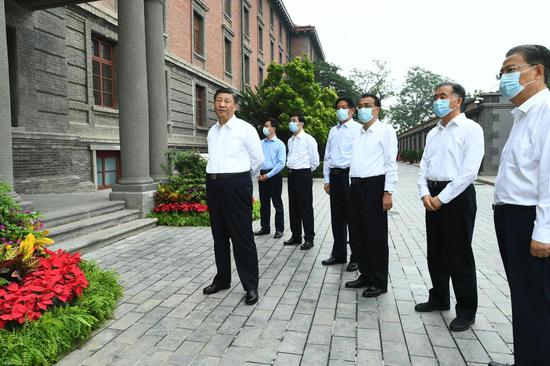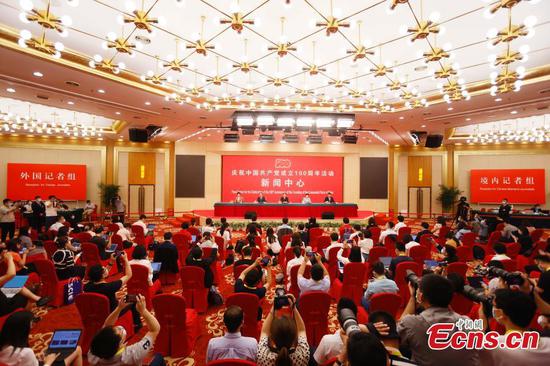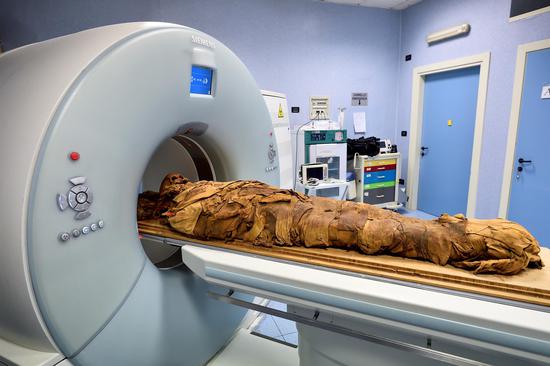Infectious disease expert says strain is twice as transmissible as previous ones
Tackling the highly transmissible delta variant of the novel coronavirus requires smarter and swifter virus control measures, as well as unswerving efforts in increasing vaccination coverage across all age groups, leading Chinese health experts said.
Since May 21, Guangdong province in South China has experienced three localized outbreaks, one triggered by the alpha variant first detected in the United Kingdom and two by the delta variant first detected in India, Zhong Nanshan, a prominent infectious disease expert, said during a recent briefing held by the provincial health commission.
As of Sunday, Guangdong had reported no new local infections for six days, according to data from the commission.
"The province has achieved initial outcomes in curbing the country's first community transmission of the delta variant," Zhong said.
He said people infected with the delta variant have much higher viral loads in their bodies, shorter incubation periods, and it takes longer for their test results to turn negative.
"The transmissibility of the delta variant is double that of normal strains," Zhong said.
Zhong added that the threat posed by the variant has prompted local governments to adjust disease control policies that were largely based on the country's experiences in dealing with regional outbreaks triggered by imported cases.
"The delta variant has updated the concept of close contacts," he said. "Previously, the concept was defined as family members, colleagues and people eating or meeting within one meter of the infected case two days before the case began exhibiting symptoms.
"When coping with the variant, the concept is redefined as those who had stayed in the same space, institution or building as the infected patients four days before they showed symptoms."
Zhong said Guangdong's quarantine measures have all been devised on the basis of the updated definition.
During its recent outbreaks, Guangdong not only accelerated mass testing, but also stepped up genome sequencing of all confirmed cases, providing clear and crucial information for analyzing the arc of virus transmission.
As for Chinese vaccines' efficacy against the delta variant, Zhong said laboratory tests and epidemiological analysis have shown that inactivated vaccines developed by Chinese researchers are protective against the new strain.
"Available evidence shows that inactivated vaccines are more than 60 percent effective in preventing symptomatic infections and nearly 80 percent effective in preventing severe cases," he said.
China had delivered nearly 1.19 billion doses of COVID-19 vaccines as of Sunday, covering 630 million people, according to the National Health Commission.
As domestic vaccines' safety has been thoroughly proved during the mass vaccination campaign and the delta variant has demonstrated a capability to induce severe symptoms in the elderly and children, Zhong said inoculation targeting those two age groups should be ramped up soon.
Zhang Wenhong, a renowned infectious disease expert based in Shanghai, said data from both China and overseas has shown that vaccines in use remain highly effective against emerging variants.
"The virus has become more cunning, but it is still within our gunshot," he said during an interview with STV, a Shanghai television station. "We should increase alertness and keep implementing anti-disease measures while enhancing mass immunization. In this way, we are able to contain the spread of the virus."
Because no vaccines have been approved for wide use among people aged under 18, Zhang said reaching the herd immunity threshold of 80 percent will require consistent efforts.
"But we must march toward that goal resolutely," he said. "There is no better way to slow down the virus transmission than giving vaccines. The higher the vaccination rate, the easier our battle against the virus in the future."




















































